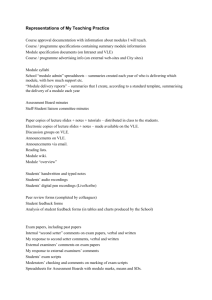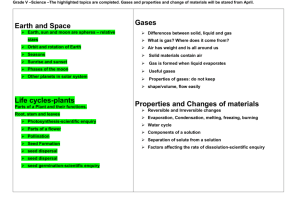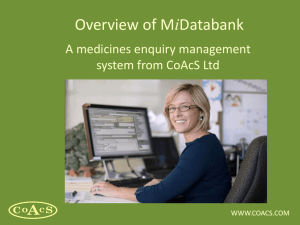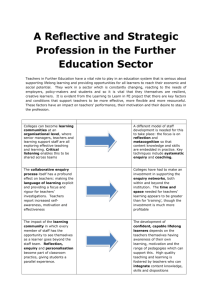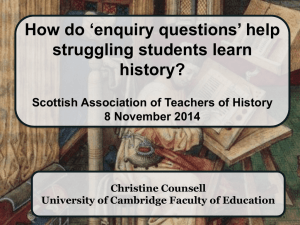Creating_Independent_Learners_inset
advertisement
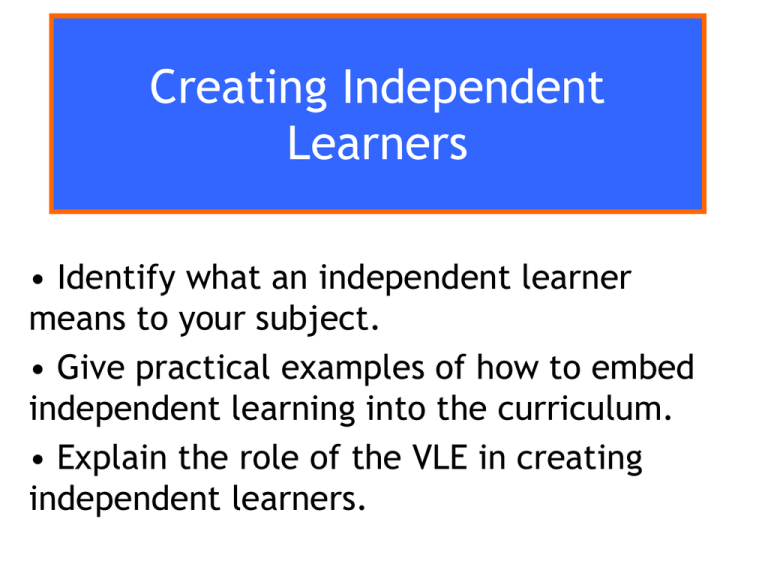
Creating Independent Learners • Identify what an independent learner means to your subject. • Give practical examples of how to embed independent learning into the curriculum. • Explain the role of the VLE in creating independent learners. Independent learners: The Issues Eat up year 11, we’ve got indicated grades to meet! What do you think independent learners should be able to do in your subject? How have we tried to tackle this? • Independent study in KS3 linked to examination type coursework • Course guides for A’ level • Classroom ‘help centre’ • Creation of a VLE (virtual learning environment) Yr 9 SOW: A brief overview Year 9 Scheme of Work: Nazi Germany Context and Outline: This is to take the form of an independent enquiry. Students will be taught the content during their normal lessons and then will be given a deadline when their final piece should be handed in. Lesson 3 is key as it takes students through the planning stages of the study. Lesson Key Ideas Student Activities 1 Germany after the war 2 opportunities/ homework Resources Skills Students are given characters in Weimar Germany. C.Cards Oral aural Hitler’s ride to power Watch video Plot Hitler’s popularity Video Living graph Note taking 3 How to complete independent study Students decide on how enquiry will be completed Start research Planning sheet Book box Independent study research Research 4 How did Hitler use propaganda Analyse posters Posters Source use Research & organisation Life in Germany was poor? Do you agree KS3 independent study: Year 9 How to conduct an independent enquiry? Decide: What are you going to do? Find: Research the information Organise: Select the relevant information Develop: ‘Write’ up your findings Present: Final production of your work Classroom ‘help centre’ Source Questions How do I… answer a ‘what do these sources tell us’ type question? Have you: Highlighted the important information in the sources? Given 1-2 words that summarise the points that you have highlighted. This is called inferring. Used the sources together e.g. Both sources tell us that… is better than source A tells us… and source B tells us… Started you answer with one of your inferences and then supported with one of the highlighted quotes Welcome to the History Department’s VLE Yr 7 independent Enquiry The Miserable Middle Ages Need help with assessments? Yr 8 independent Enquiry Multi-Cultural Britain Did you know all Carnegie medal nominees are historical fiction? Yr 9 independent Enquiry Nazi Germany GCSE Coursework Vietnam GCSE Coursework Jack the Ripper Yr 13 Independent Study Click here for •Mark schemes •Hints & tips •Model answers Been anywhere interesting? Tell us about it What are you reading? Click here to see suggested reading Read it? Leave a review Welcome to the History Department’s VLE Yr 7 independent Enquiry The Miserable Middle Ages Decide: Click here for ideas on how to present your work Find: Click here for a list of books and suitable websites Organise: click here for advice on note taking Develop: Click here for ideas on how to start writing your study Present: A checklist on your final presentation Welcome to the History Department’s VLE How are you going to present your work A leaflet for a new historical site set in the Middle Ages What is appropriate? Chat show Interview someone from the Middle Ages. Write a script or film it!! THINK!! Medieval diary. 3 days in the life of a Medieval person Maybe you could do two different people, one rich, one poor. What can you manage to do in the time? How are you going to hit the levels? SBS PLTS & Independent Learning Independent Enquirers & Risk Takers •Plan and carry out research, appreciating the consequences of decisions. •Analyse and evaluate information, judging its relevance & value. Creative thinkers & Confident Individuals •Ask questions to extend their thinking •Try out alternatives or new solutions and follow ideas through •Adapt ideas as circumstances change Reflective and Resilient Learners •Assess themselves and others, identifying opportunities and achievements •Set goals with success criteria for their development and work •Review progress, acting on the outcomes •Evaluate experiences and learning to inform future progress •Communicate their learning in relevant ways for different audiences Reflective and Resilient Learners Work towards goals, showing initiative, commitment and perseverance Organise time and resources, prioritising actions Anticipate, take and manage risks And now… • How could you create independent learners in your subject? • Do you need any further advice? – Email ayresc@simonballe.herts.sch.uk



